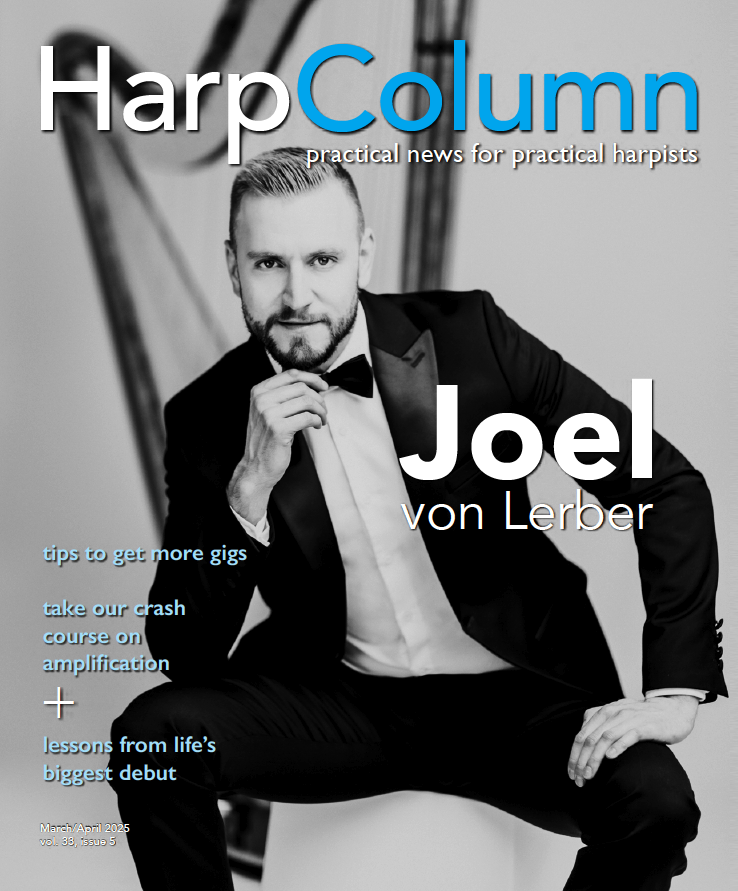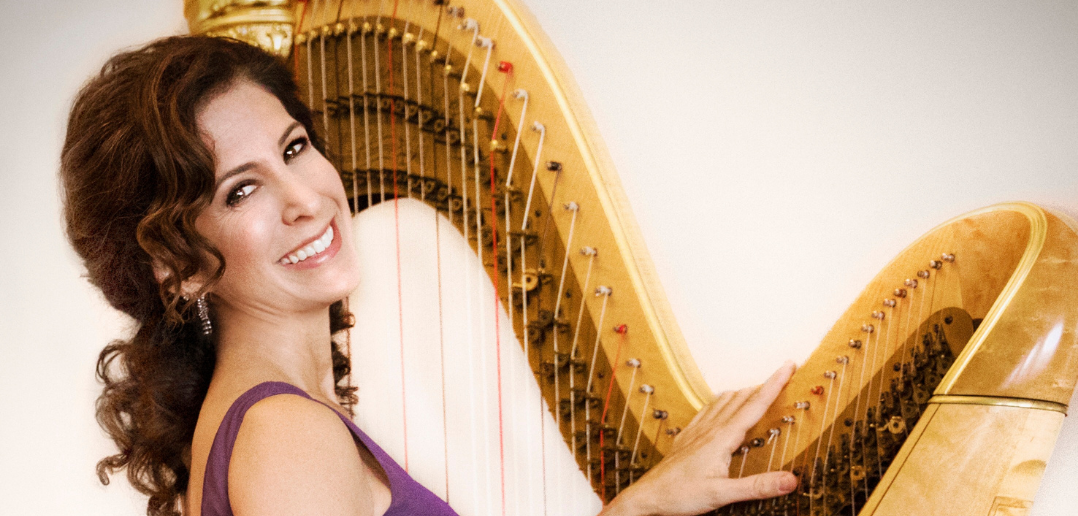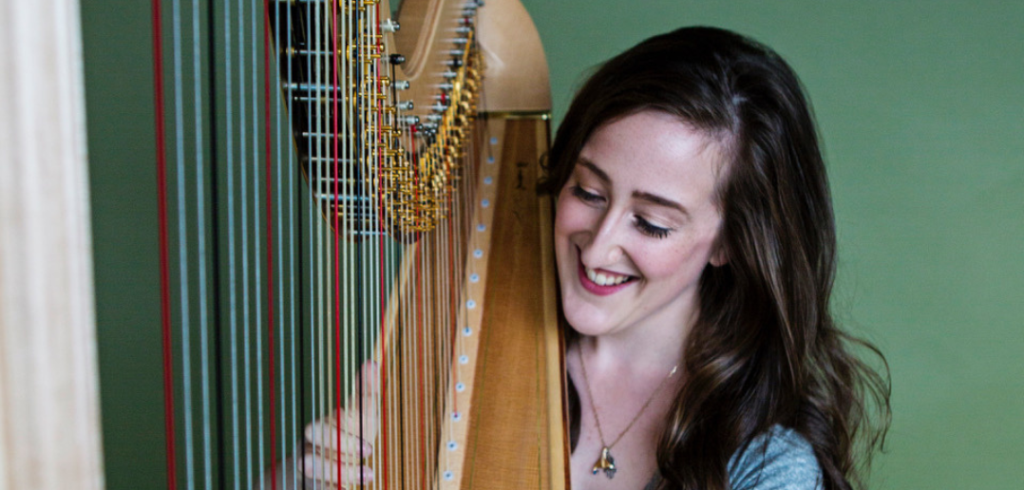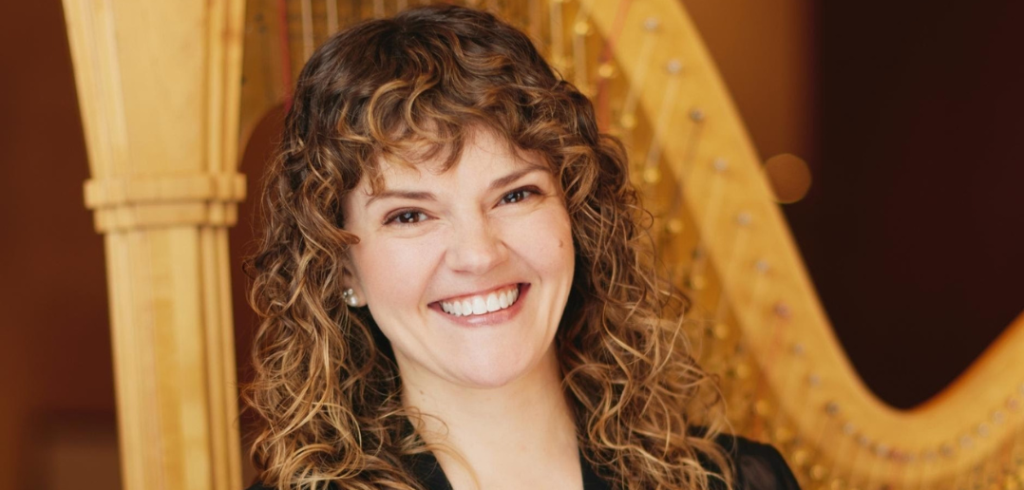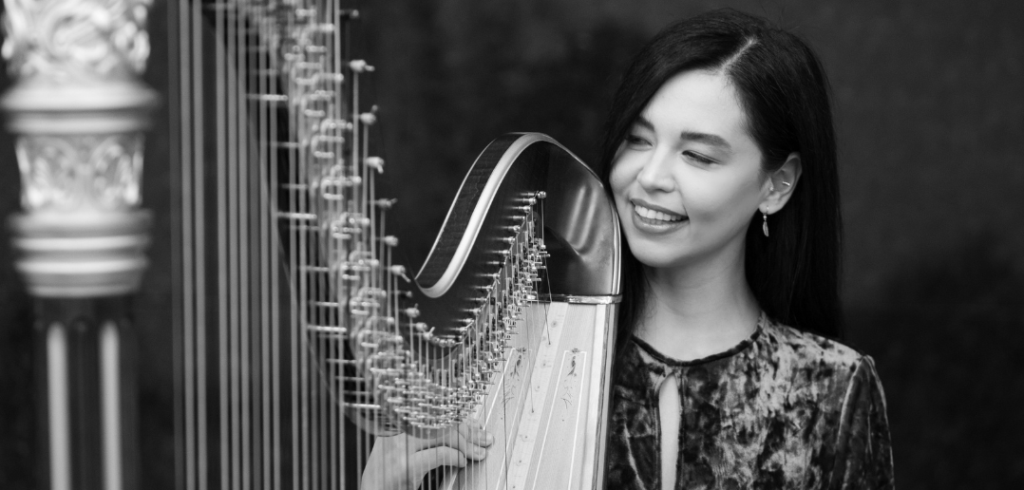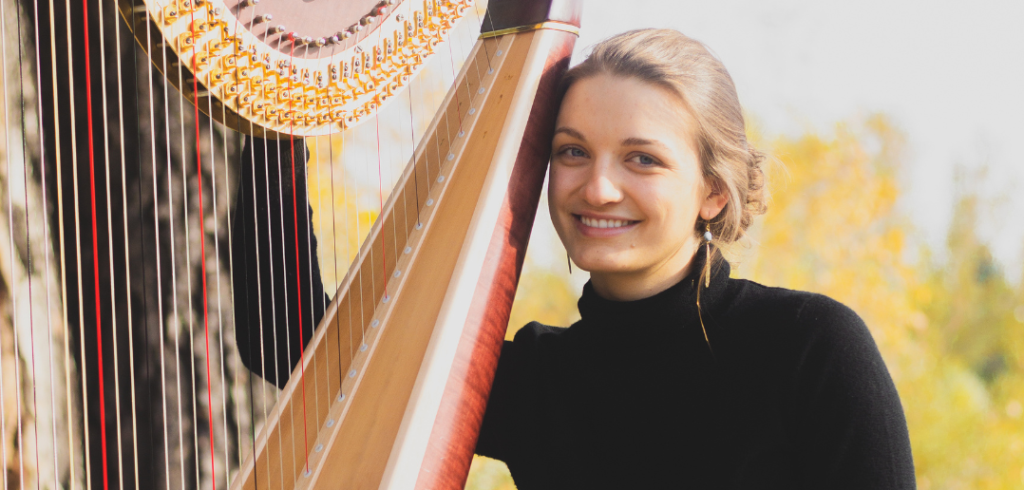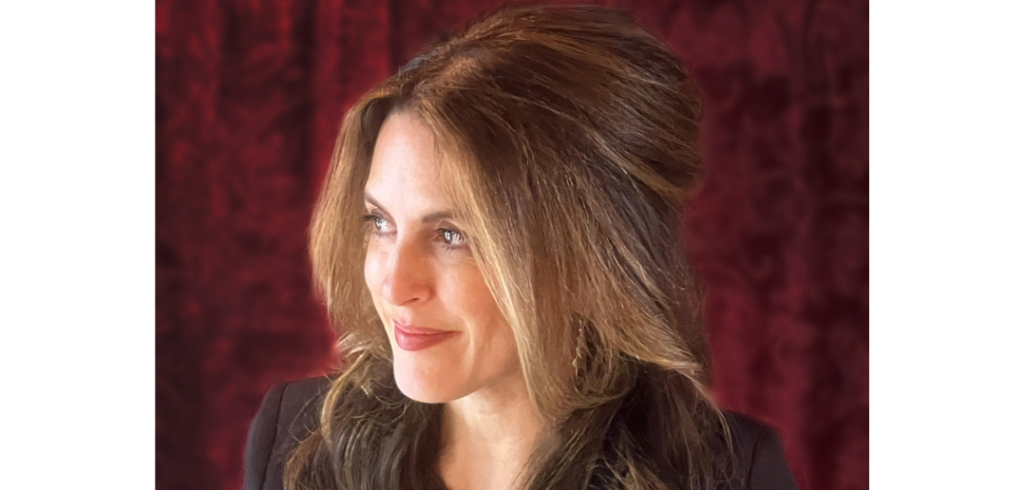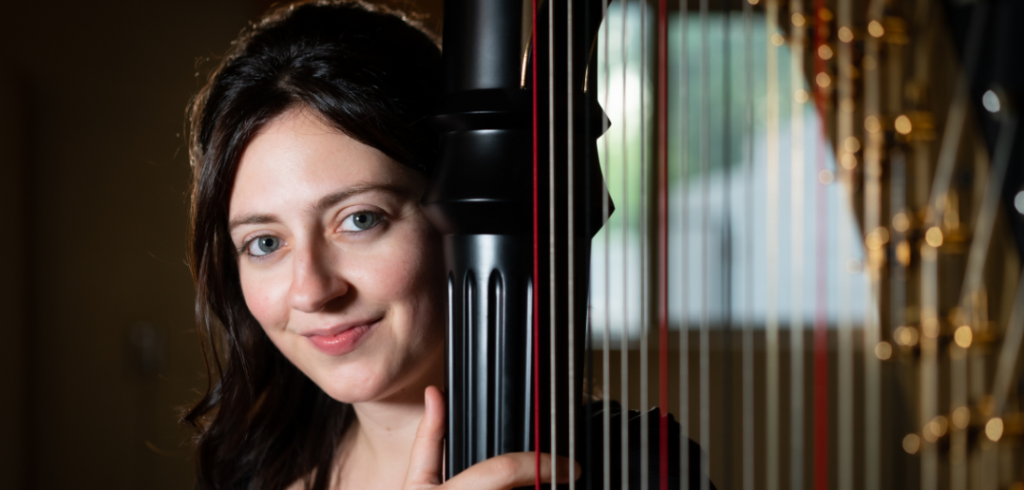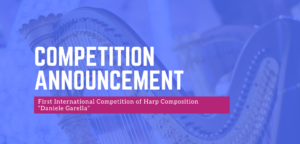Princeton University in New Jersey has appointed Stacey Shames to its music performance faculty. Shames is the solo harpist of the Orpheus Chamber Orchestra, is a member of the Aureole Trio (flute, viola, and harp), and has recorded on several internationally recognized labels. We reached out to Shames to learn more about her teaching appointment.
Tell us about your harp teachers and how they shaped you.
I am profoundly grateful to have studied with Nancy Allen for both my undergraduate at the Manhattan School of Music and my master’s at Juilliard. Nancy always tells people I was her first student. I believe that is true, certainly at the college level. My early formative years were with the great teacher and student of Salzedo, Leone Paulson. She was the quintessential pedagogue, completely devoted to teaching. I believe it was from her that I learned the joy of giving selflessly to those next generations, and doing so without ego. I like to think she would be thrilled to know I became a pretty good teacher, now at Princeton, and that I am still sharing her bits of wisdom and amazing stories.
What specialized skills or interests do you bring to the position at Princeton University?
As a certified yoga instructor, I bring the idea of “wellness” to the studio at Princeton. A healthy, exercising, flexible, breathing body is necessary for any pursuit, but especially in a pressure-cooker environment with students who already tend towards over-achieving. So much of my teaching centers on posture, strength, relaxation, calm, focus, and maintaining a meditative quality while playing. Visualization of skills and simply being in one’s body, in the present moment, is paramount.
Second, as a mother of three daughters, including twins currently in their freshman year of college, I am very experienced with this age group and all that it encompasses. I can (and will) ride the emotional waves with my own children, and bring that to my harp students, as well. I am a natural-born Jewish mother, and my nature is to nurture in all ways. Gentle guidance, empathy, kindness—I consider those to be specialized skills. Everyone reading Harp Column certainly understands the transformative power of studying and playing the harp, and I believe it can serve a therapeutic function.
And perhaps most importantly, my own career has had great variety, and I bring all of that to Princeton. I am an orchestral principal, I concertize and have recorded extensively with my trio Aureole, and I have also experienced a vibrant several decades playing with popular artists, performing on Broadway, as well as recording music for television and film. I know what it is to uber-prepare for a concerto or competition, to work hand-in-hand with composers on a commission, but also what it takes to be able to read and record a pile of music thrown onto your stand with the ink still wet! In all of its harrowing detail, I bring the experience of variety.
What are your goals as a teacher at Princeton University?
At Princeton, unlike Juilliard, or within other conservatory settings, the students are not harp majors or music majors. They are incredibly bright, motivated, responsive kids, but their music lessons are considered extra-curricular to their profoundly intense degree programs. There are orchestras and ensembles performing at an incredibly high level, but studio lessons, chamber music classes, and coachings are completely by choice. So, my goal is to honor that choice and take the students from wherever they are toward their own personal harp aspirations, within that framework. School is rigorous, and since beginning last fall, I take cues on intensity level in harp achievement from each individual student. Not everyone needs to be prepping for competitions and auditions. There are other ways to have a harp “practice” in one’s life.
How would you describe your teaching approach?
I am big on sound production and building a strong technique with zero tension anywhere in the body. And then, it’s all about making the phrases soar! My lessons tend to be filled with singing, solfege, and lots of crazy metaphors found in real, non-harp life. I choose a path through the repertoire for each student by simply knowing what they need to work on next, in order to rise to the next level.
Do you have any other thoughts to share about your appointment?
Some might think I am coming to teaching a bit late in my career. Many of my younger colleagues ran out to grab teaching positions early on, but honestly, it took me some time to digest all that my career has been and to assimilate all of the many lessons held therein. Of course, I have maintained a private studio and have taught for many years, but in terms of a university position, I needed to be sure of what I was bringing to the table, be clearer on my methods, and be confident that I had attained a certain level of expertise in communicating those soundbites. It is really only now that I feel I truly have some amount of harp wisdom to impart! I am, quite honestly, thrilled about this appointment and extremely grateful.




